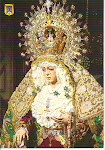
The president of the bishops’ conference of the Philippines issued a statement about the Motu Proprio Summorum Pontificum.
My emphases and comments.
STATEMENT ON THE "TRIDENTINE" MASS
We fully welcome with respect and appreciation the recent Apostolic Letter of Pope Benedict XVI on the "Tridentine" Mass. It clarifies for us the status of the Tridentine Mass in the Latin Language. [Okay… I would like more precise language, but it gets the point across and it is warm.]
In accordance with the Apostolic Letter ("Motu proprio") entitled "Summorum Pontificum" of Pope Benedict XVI, the celebration of the so-called Tridentine Mass, which is in the Latin language, [Again… so many people focus on the language of Mass. I don’t think the language is the most important dimension, but… it is one of the most obvious differences between the older form and the way Mass is celebrated far and wide.] as approved by Blessed Pope John XXIII in 1962 continues to be fully permissible as an extraordinary form of the Mass. The Tridentine Mass was never forbidden or abrogated.
The so-called "New Mass" which was introduced after the Second Vatican Council and approved by Pope Paul VI in 1970 has become more popular among the people because it allowed the use of some approved adaptations, including the use of the popular languages and dialects. [This seems to be this fellows real point of interest.] It became the ordinary form of the Mass, widely celebrated in the parish churches.
When may the Tridentine (Latin) Mass be celebrated? According to the letter of Pope Benedict XVI, it may be celebrated by catholic priests of the Latin Rite: a) in private masses, b) in conventual or community mass in accordance with the specific statutes of the Congregation, c) in parishes upon request of the faithful and under the guidance of the bishop [This is not really accurate, is it. The PASTOR is the one who needs to regulate things. The Bishop has an role of helper when reasonable expectations can’t be met.] (in accordance with Canon 392). In such Masses, however, the readings may be given in the vernacular. [Again, this is this bishop’s main focus, it seems.]
This permission given by Pope Benedict XVI means that the Mass in Latin and in accordance with the formula of the Council of Trent, hence Tridentine, with the celebrant’s back to the faithful [We are now even more heavily into the incidentals, but without question he is right: it cannot be forbidden. I like the fact that he said it so clearly. However, this also applies to the newer Mass! So does Latin!] may be celebrated, as it was never forbidden or abrogated. For new priests, this will require formation in the Latin Mass. [See what I mean?]
Now, we are instructed that in the liturgy of the Mass, there is the ordinary form which is that approved by Pope Paul VI in 1970 after the Vatican II; and there is the extraordinary form – the Tridentine (Latin) Mass which is that approved by Blessed Pope John XXIII in 1962. The two forms will have their way of leading the faithful to the true worship of God in prayer and liturgy; and may even be a factor for unity in the Church.
+Angel N. Lagdameo
Archbishop of Jaro
President, CBCP
JULY 9, 2007
Okay… this was pretty good, though somewhat limited in perspective. I am sure the bishop is writing with knowledge of the needs of the people in that region.











No comments:
Post a Comment